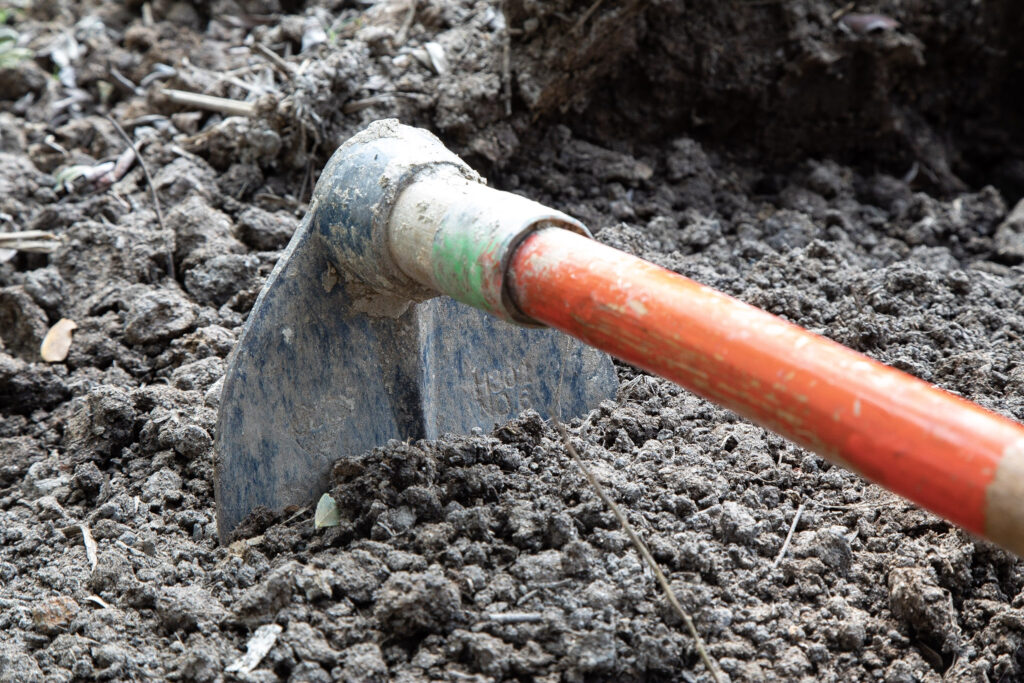
Was wir tun
Rupantor ist ein Beschäftigungsprogramm für Menschen mit einer Beeinträchtigung. Wir wollen unsere behinderten MitarbeiterInnen fördern und befähigen, ihre Fähigkeiten und Talente einzusetzen. Eine geregelte Tagesstruktur wirkt sich sehr positiv auf ihr Leben aus.
Unsere Aktivitäten
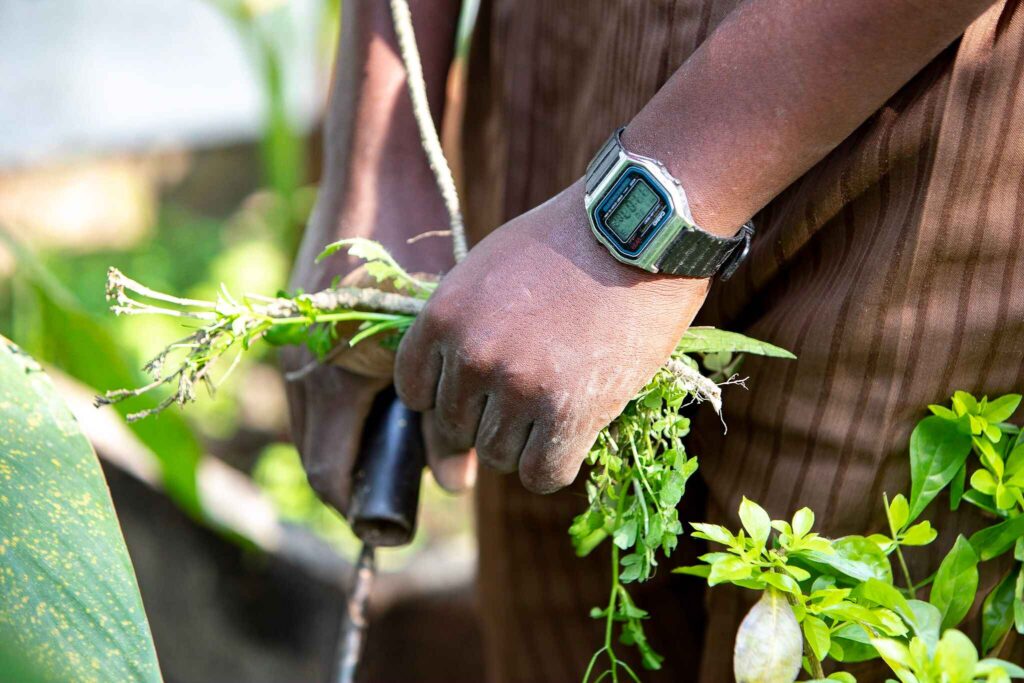
Arbeit im Garten
Unsere Mitarbeiterinnen arbeiten täglich in den weitreichenden Gartenanlagen des Spitals. Wir kultivieren Gemüse und Pflanzen und stellen Wurmkompost her. Wir unterhalten die Gärten von Privatkunden und für die verschiedene Abteilungen des Lamb-Projekts wie zum Beispiel das Ausbildungszentrum, das Gästehaus, die Schule und das Krankenhaus an. Das sind laufende Daueraufträge über das ganze Jahr. in the extensive hospital grounds and staff gardens. Vegetables and plants are grown from seeds and cuttings and sold along with compost produced from vermiculture. We provide garden services for individual customers living in the residential area and for different Lamb-Project departments like the Training Centre, Guesthouse, School and Hospital. These are ongoing standing orders throughout the year.

Reis Anpflanzungen
Auf einer Fläche von 41 Aren Planzen wir unseren eigenen Reis an den wir dann and Angestellte vom LAMB Projekt verkaufen oder für den Eigenbedarf nutzen.
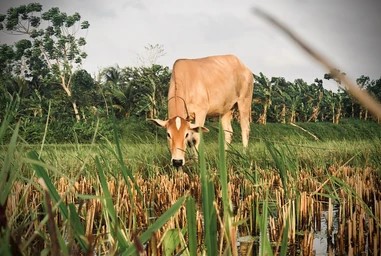
Kuhhaltung
Unsere MitarbeiterInnen pflegen und schauen zu unseren 10 Kühen, 9 Ziegen und 8 Schafen. Sie füttern sie, bringen sie auf die Weide und reinigen die Ställe. Unsere behinderten MitarbeiterInnen schätzen diese abwechslungsreiche Arbeit sehr. Wir hoffen bald auch mit einer Hühnerfarm anzufangen. goats and 8 sheep. They feed them and take the animals to the pastures, clean their barns and watch over the animals. Our beneficiaries are very happy as we can offer a wider variety of work. We are hoping to start a poultry farm soon as well.
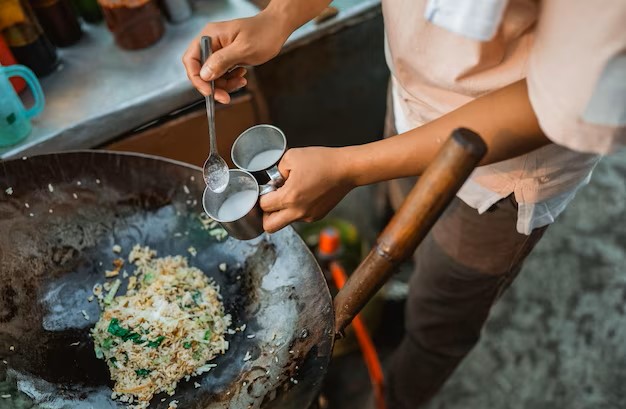
Zusammen kochen
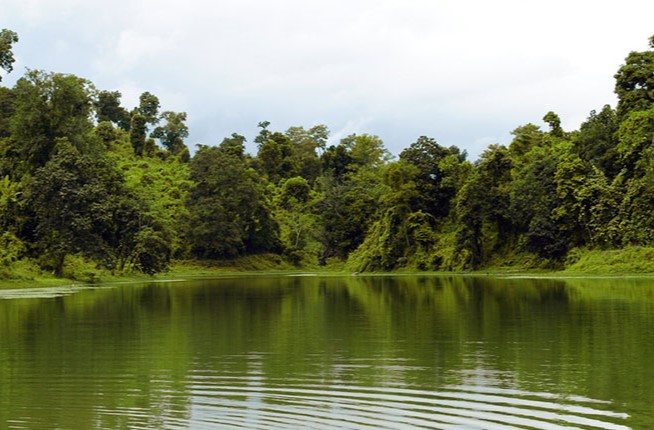
Fischzucht
Von einer nahegelegenen Fischzucht kaufen wir kleine Fische dir wir In einem gemieteten Teich aussetzen. Der Teich wird von unseren MitarbeiterInnen gereinigt und die Fische werden täglich gefüttert. Wenn die Fische gross sind werden für unsere eigenen Mahlzeiten verwendet.
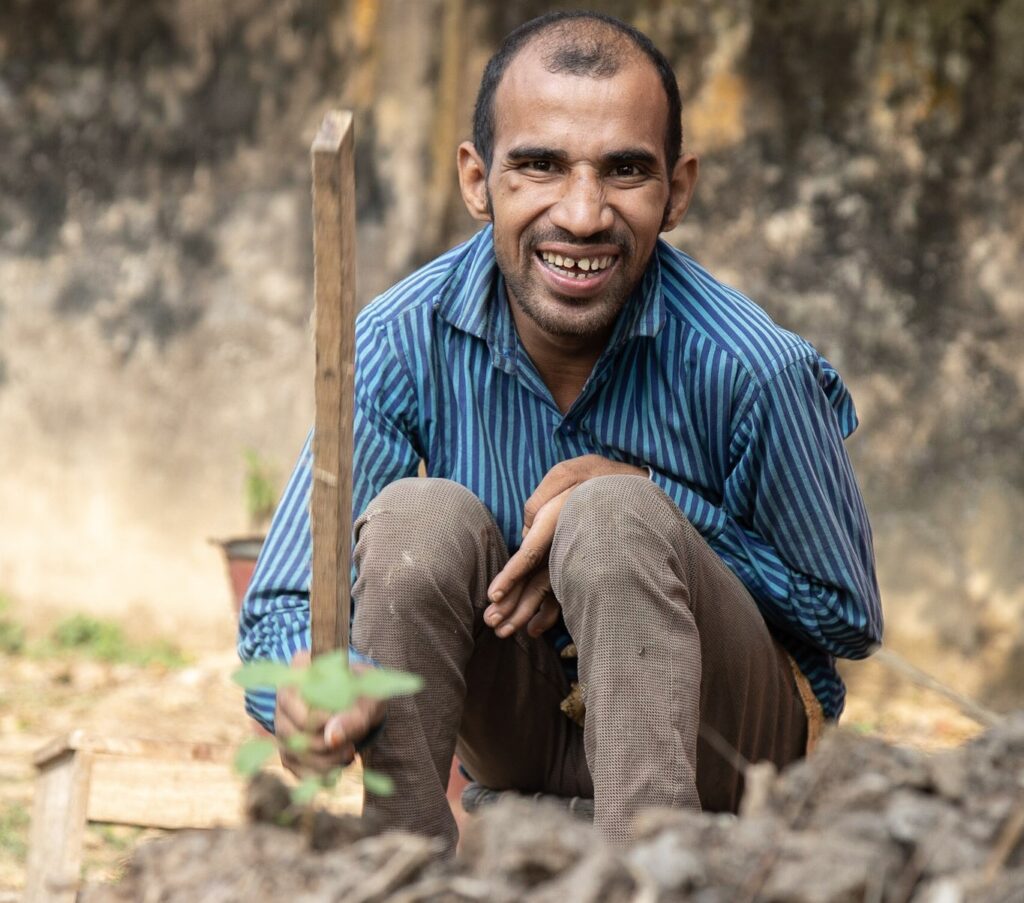
Wurmkompost
Wir machen unseren eigenen Wurmkompost. Wurmkompost ist ein nährstoffreicher Kompost, der von Regenwürmern produziert wird und zum Abbau organischer Abfallstoffe dient. Dabei verzehren Würmer, wie beispielsweise Kompostwürmer, Essensreste und andere organische Stoffe und verwandeln sie in einen wertvollen Bodenverbesserer und Dünger. Wurmkompost ist aufgrund seines höheren Nährstoffgehalts und der nützlichen mikrobiellen Aktivität ein sehr guter Kompost den wir auch in unseren Gärten einsetzen. let earthworms feed on it. The excrement from the worms works as soil conditioner. The earthwork fertilizer is natural and environment friendly. With rising demand for organic products, our workers help produce and sell the fertilizer for Tk 15 per kilogram.
